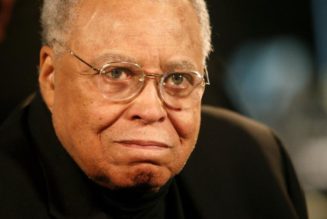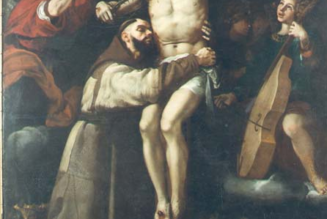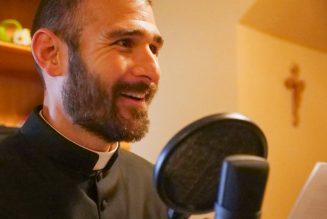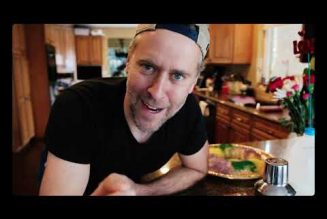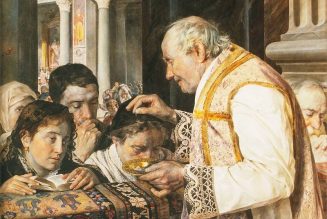By Fr. Jerry Pokorsky ( bio – articles – email ) | Jun 24, 2024
Top-rated comedians have a keen eye for absurdities. Their clever skepticism may explain why many are atheists. Thoughtful atheists exalt reason and exclude the content of faith—the acceptance of credible authority. The atheist (like Ricky Gervais) demands, “Show me the evidence of God’s existence.” Evidence abounds, of course. But we need faith—and childlike simplicity—to allow the evidence to give us a reasonable portrait of God.
The Church breathes with two lungs: faith and reason. Faith elevates, directs, and endows reason with meaning. Mary pondered the meaning of Gabriel’s words she received in faith. Jesus calms the sea, demonstrating His power over the ominous, volatile, and uncontrollable elements (cf. Mk 4:35-41). For those with the eyes of faith, Jesus reveals his divinity. Only God has such dominion. The apostles had sufficient evidence to make this conclusion—especially after the Resurrection. With good reason, we place our trust in their testimony and the authority of the Church’s Deposit of Faith. We believe, and our faith is reasonable.
Faith grasps truths that are beyond the capacity of human reason. But faith without the rigors of reason impairs authentic theological understanding and development. Logical arguments set the stage for faith, connect the dots, and enhance our understanding.
The five arguments for God’s existence
Here is a quick summary of St. Thomas’ five arguments pointing to the existence of an unseen God:
- An Unmoved Mover. There has to be an unchangeable first mover to start the whole of creation: God.
- The First Cause. We observe cause and effect in every aspect of life. There has to be an uncaused cause after which everything else comes: God.
- Contingency or Necessary Being. Anything can cease to exist, whether by death or destruction. Why hasn’t the world vanished by now? A necessary being continues to hold creation in existence: God.
- Gradation. Things can be more or less good, more or less true, or more or less beautiful. There must be something perfectly good, true, and beautiful: God.
- Design. Nature—gravity, magnetism, the weather, etc.—have intricate and detailed ways of working with specific functions. Random forces cannot explain the order. The world needs an intelligent designer: God.
Pascal’s wager
Pascal contends that a rational person should conduct his life consistent with the existence of God and actively strive to believe in Him. Here is his wager: If God does not exist, an individual incurs only finite losses, potentially sacrificing certain pleasures and luxuries. However, if God exists, an individual stands to gain immeasurably by an eternity in heaven and avoiding boundless losses associated with an eternity in hell.
The lives of the saints
Jesus says, “Why do you call me good? No one is good but God alone.” (Mk. 10:18) Even righteous atheists participate in authentic human goodness but need faith to identify God as its source. The saints humbly acknowledge their insignificance without God and know God rewards their humility with heaven.
St. Aloysius Gonzaga overcame his reasonable fears and surrendered everything to God in faith. When a plague struck Rome in 1591, the Jesuits sent every priest and novice to work in the wards. As Aloysius ministered to the sick, his fear and disgust gave way to compassion. He washed the dying, found them a bed—or at least a pallet, and fed them. Within a few weeks, Aloysius also contracted the plague and died. He was 23 years old.
In the tenderness of youth, Aloysius expressed the serenity of his faith in a letter to his mother (from the Divine Office):
If charity, as St. Paul says, means to weep with those who weep and rejoice with those who are glad, then, dearest mother, you shall rejoice exceedingly that God in his grace and his love for you is showing me the path to true happiness, and assuring me that I shall never lose him… In return for my short and feeble labors, God is calling me to eternal rest; his voice from heaven invites me to the infinite bliss I have sought so languidly…
And our parting will not be for long; we shall see each other again in heaven; we shall be united with our Savior; there we shall praise him with heart and soul, sing of his mercies forever, and enjoy eternal happiness…
I write all this with the one desire that you and all my family may consider my departure a joy and favor and that you especially may speed with a mother’s blessing my passage across the waters till I reach the shore to which all hopes belong…
St. Paul expresses the same faith: “Lo! I tell you a mystery. We shall not all sleep, but we shall all be changed, in a moment, in the twinkling of an eye, at the last trumpet. For the trumpet will sound, and the dead will be raised imperishable, and we shall be changed.” (1 Cor. 15:51-52)
Godly joy
A memorable story in Reader’s Digest decades ago recounted the adventures of a college kid, eager to fill out the academic schedule of his final semester with an easy pass/fail course, who selected a bird-watching seminar. To his dismay, the professor required arduous early Saturday morning field trips to the wilderness, where the students learned the names and behaviors of the amusing variety of birds. He barely passed, graduated, got a job, married, and had children.
Relaxing with his family, the memory of his bird-watching returned with—this time—great joy. The father delighted his curious children in a nature walk, naming the birds and describing their behavior. Children love the comedy and playful absurdities of God’s handiwork! What more evidence do we need? “Let the children come to me, and do not hinder them; for to such belongs the kingdom of heaven.” (Mt. 19:14)
We exist. God knows we exist. He loves us and gives us the Sacraments to sustain us through the ups and downs of life. “We believe, and so we speak.” (2 Cor. 4:13)
Sound Off! CatholicCulture.org supporters weigh in.
All comments are moderated. To lighten our editing burden, only current donors are allowed to Sound Off. If you are a current donor, log in to see the comment form; otherwise please support our work, and Sound Off!

There are no comments yet for this item.


